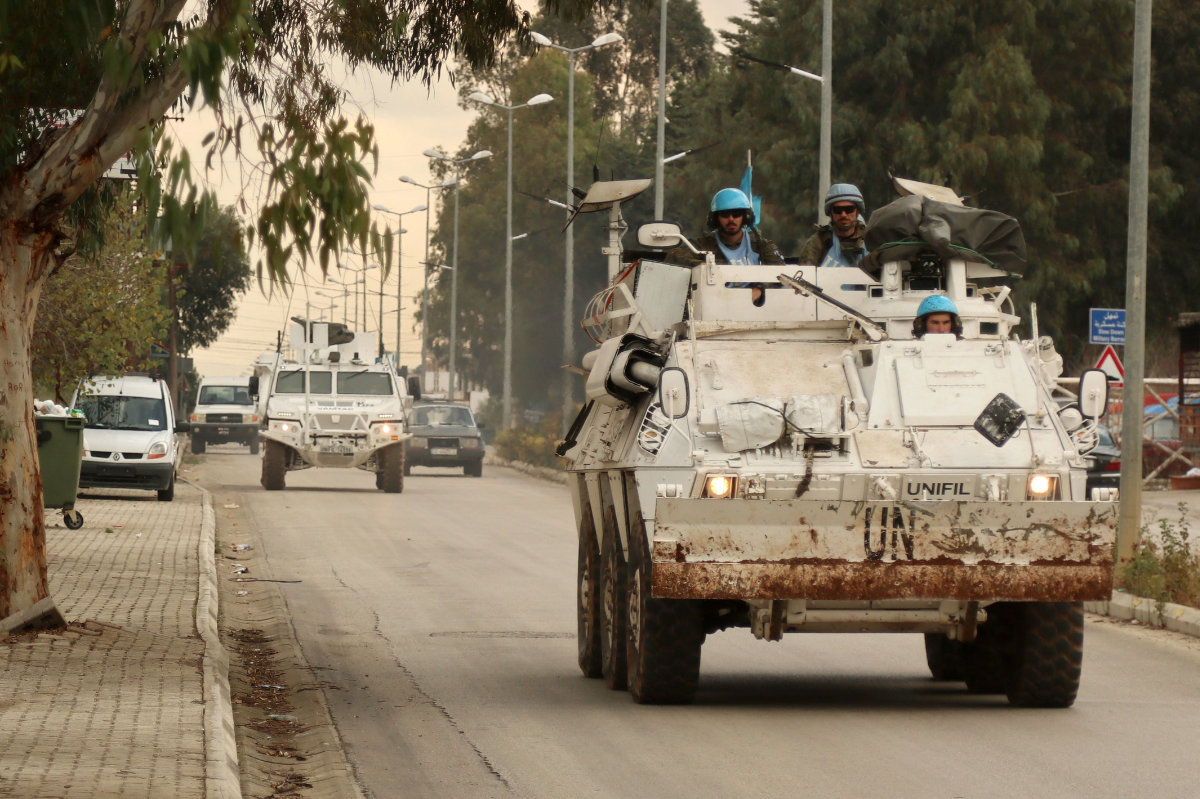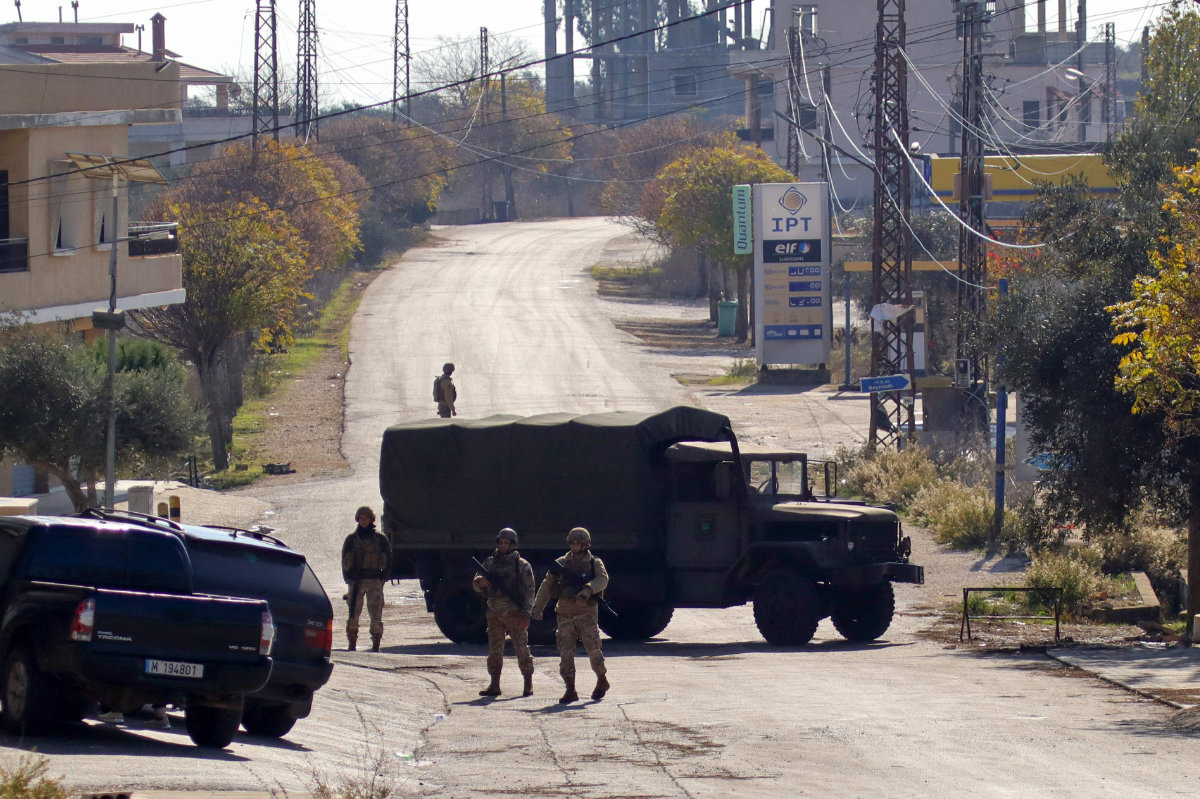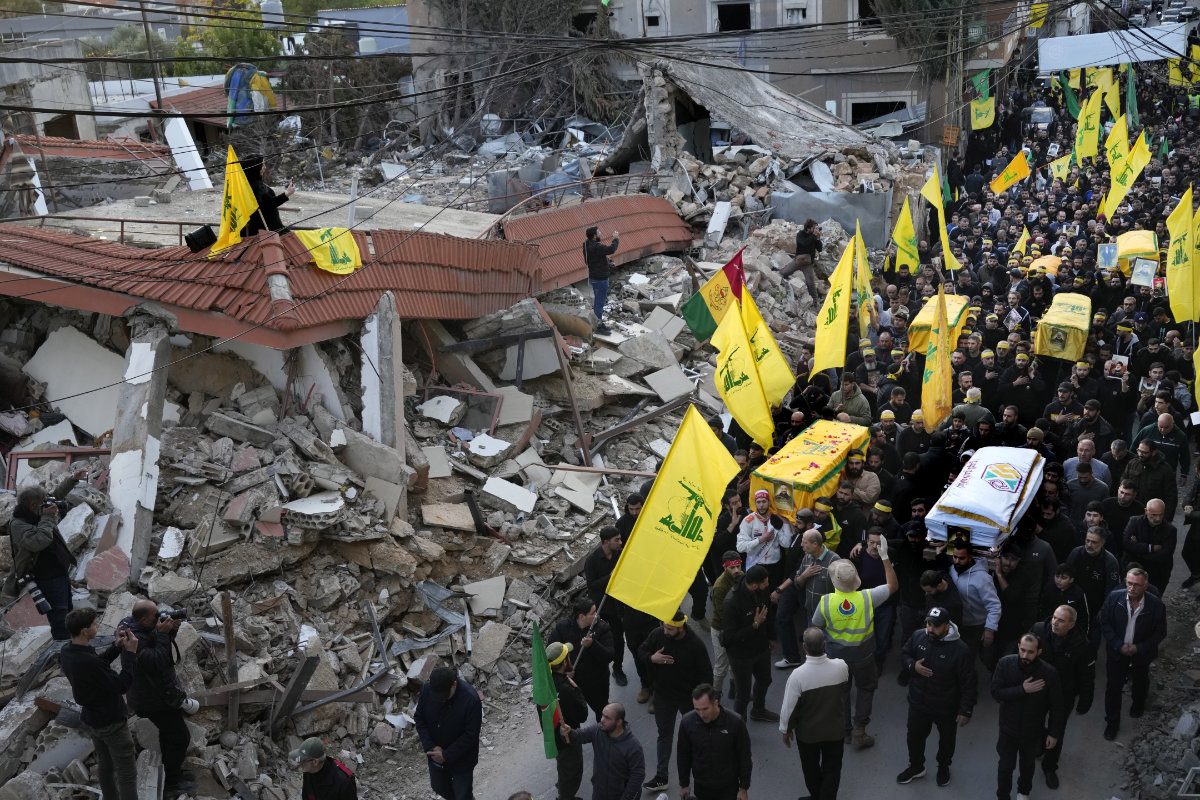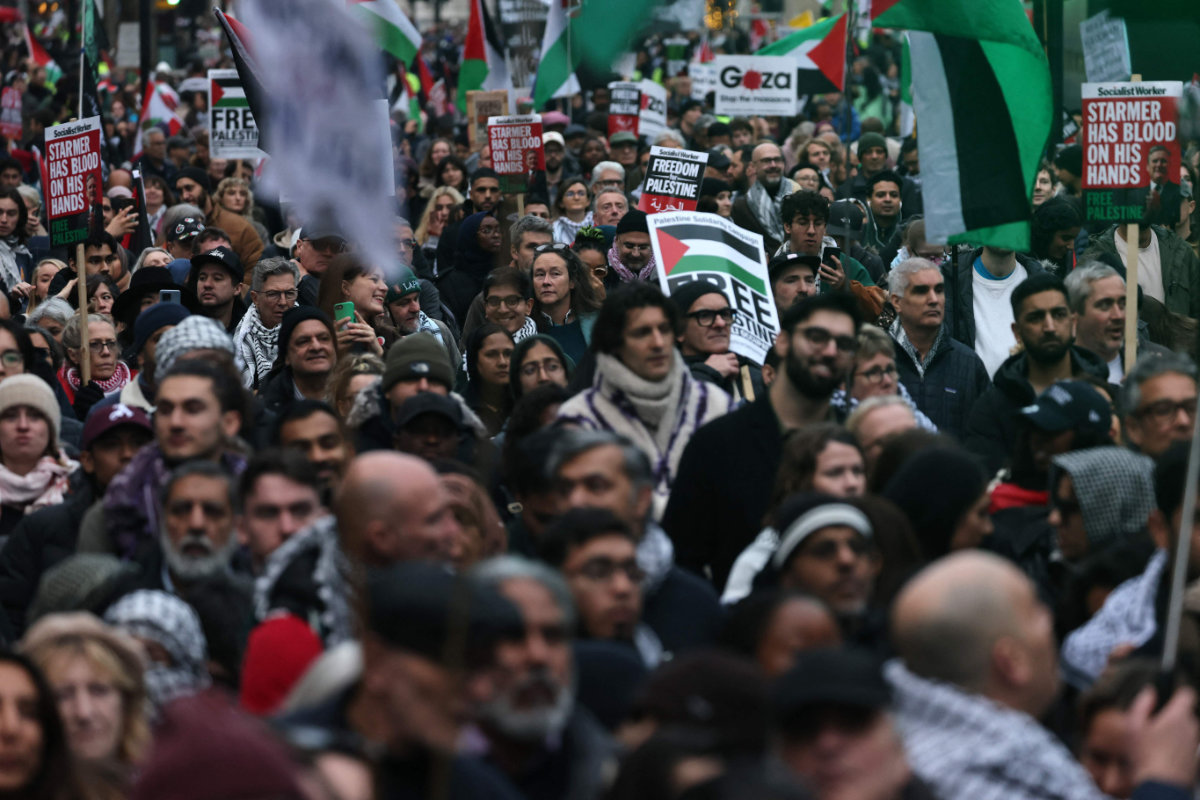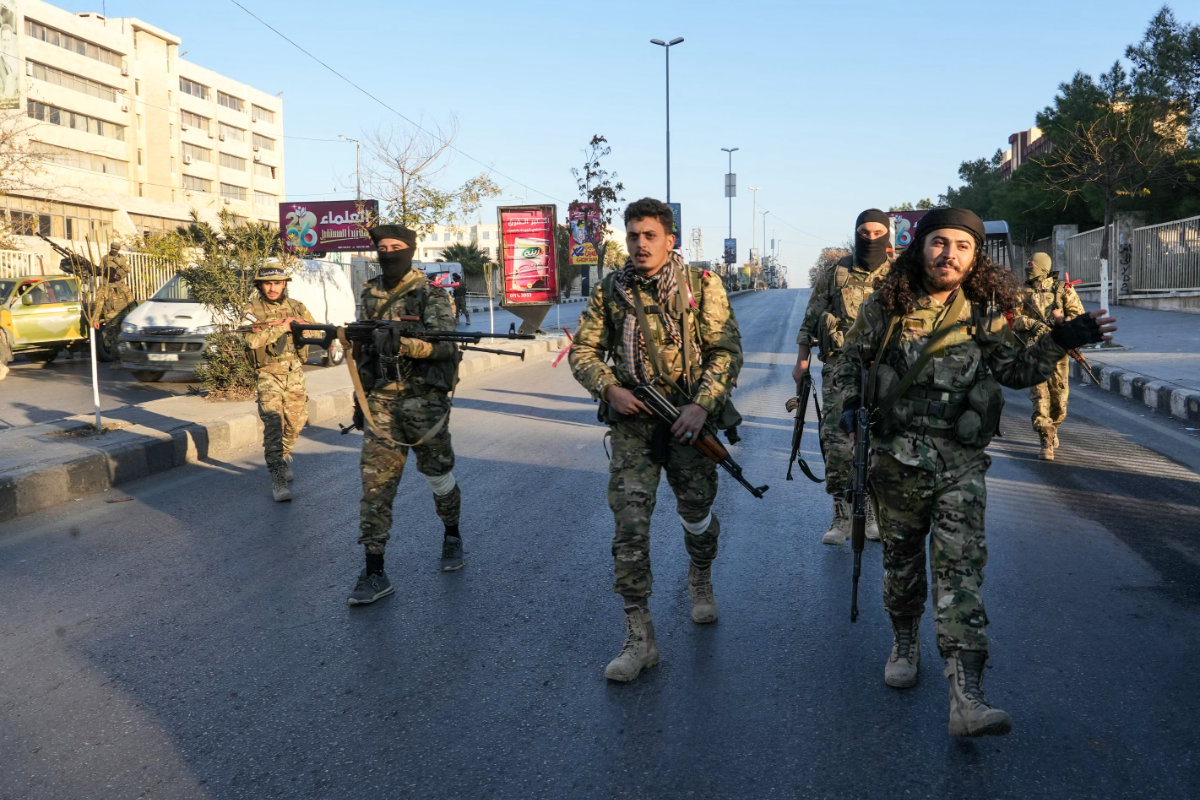LONDON: On Oct. 6, 2023, it was grim business as usual in the central West Bank town of Hawara, where clashes between the Palestinian residents and armed gangs from nearby Israeli settlements are depressingly common.
One night in February last year, as part of an ongoing ad hoc campaign of intimidation, and the endless cycle of tit-for-tat killings, hundreds of settlers had attacked the town, setting fire to dozens of buildings, killing one resident and injuring 100 more as Israeli soldiers looked on.
On Oct. 6, it was 19-year-old Labib Dumaidi’s turn to die, shot in the heart during another invasion of the town by a mob of armed settlers who, in a typical act of extreme provocation, had entered the town in force to set up a temporary prayer hut.
One more victim had been added to the steady toll of lives lost in the ongoing, low-level war of attrition between occupying Israeli security forces and Palestinians in the West Bank.
And then, the following morning, the drama of everyday life and death in the West Bank was suddenly forgotten.

A man standing atop a heavily damaged building views other destroyed buildings in Khan Yunis in the southern Gaza Strip on October 7, 2024. (AFP)
One year on, in the wake of the Hamas-led attack on Israel and Israel’s response — which so far has claimed more than 40,000 lives in Gaza and has now bled over into Lebanon — it is possible to look back almost nostalgically to the days before Oct. 7, 2023.
Now, however, with Israeli troops operating in increasing numbers in Lebanon, Hezbollah members and leaders being targeted with seeming disregard for the lives of innocent bystanders, and Israeli Prime Minister Benjamin Netanyahu telling Iranians their freedom would “come a lot sooner than people think,” almost anything seems possible.
Anything, that is, but peace and an end to the bloodshed in Gaza, Lebanon and the West Bank — where, with the world’s attention diverted elsewhere, Israeli military-backed settler violence against Palestinians has been stepped up to a new level.
The big question now is how much further the conflict might escalate.

Israeli army vehicles drive in a street during an army raid in Jenin in the occupied West Bank on September 25, 2024. (AFP)
Arshin Adib-Moghaddam, professor in global thought and comparative philosophies at SOAS University of London and author of the book “What is Iran?”, believes that “the strategic aim of this Israeli administration has been to drag the United States into a wider regional conflict, as Israel itself does not have the capability to conduct a war with Iran.”
And, “given the centrality of the United States to this plan, it can only be the US government that can facilitate peace, by restraining Benjamin Netanyahu with active steps, not token gestures.”
But with dangerously bad timing, the US is less than a month away from an election that will see either Democrat Kamala Harris or Republican Donald Trump enter office in January as the next president.
Both the election and the subsequent transition of administrations, of whichever stripe, can only hamper US diplomatic investment in the current crisis. Nevertheless, according to Adib-Moghaddam, “if the current conflagration of conflicts is not mitigated, we will be embroiled in a war with global repercussions, certainly in terms of the economic consequences.
“My recommendation would be to engage the reformist Iranian administration around (recently elected) President Masoud Pezeshkian, as a part of a wider strategy to subdue the right-wing factions on all sides.”

The prospect of a Third World War has been looming ever since the end of the second, and in the current crisis, the specter has been raised once again.
An illustration of how relatively minor regional conflicts can escalate out of control can be found in the origins of the First World War, which saw more than 30 nations declare war and, between 1914 and 1918, cost up to 20 million lives.
Then came the flu epidemic of 1918-1919, which remains an object lesson in the dangers of unforeseen circumstances. Believed by some epidemiologists to have been triggered by the arrival on the western front in Europe of infected US soldiers, the epidemic killed even more people than the war itself.
“I think it was George W. Bush who once said, ‘It is difficult to predict — especially the future’,” said Ahron Bregman, former Israeli soldier, author, and senior teaching fellow in the Department of War Studies at King’s College London, specializing in the Arab-Israeli conflict and the Middle East peace process.
“But looking into my crystal ball, I believe that it will neither be back to business as usual nor World War III. Both Israelis and Iranians do not want to have a big war.
“Of course, war has its own dynamic, and war could impose itself on them, but I want to believe that they will try to contain it. I might be wrong.”

Elsewhere, on Israel’s doorstep, Bregman said, “The situation between Israel and the ‘rest,’ so to speak, is one of attrition. Attrition wars are often long and bloody, therefore returning to ‘business as usual’ (after the events of the past year) would be difficult.”
Now, “the center of gravity has shifted to Lebanon, and there we will witness weeks, months and, perhaps, if Israel gets stuck there, even years of friction.”
Israel’s history of engagement with its northern neighbor Lebanon offers sobering evidence of the truth of this prognosis.
Israel’s first major intervention in Lebanon was in March 1978. In response to a terrorist attack that killed 28 Israelis, 7,000 Israeli troops crossed the border in a bid to evict the Palestine Liberation Organization from southern Lebanon. They advanced about 25 km into the country, to the southern bank of the Litani River, killing up to 500 fighters and three times as many civilians, and internally displacing more than 100,000 people.

Israeli soldiers entering a village during the first invasion of southern Lebanon on 15 March 1978. (AFP)
This invasion triggered a fierce response from the PLO and, ultimately, led to the 1982 Lebanon War. This time the Israelis seized half the country, laid siege to Beirut and, in an act that remains notorious to this day, stood by as an estimated 3,000 Palestinian and Lebanese civilians were massacred by a Christian militia in the Sabra neighborhood of Beirut and the nearby Shatila refugee camp.
By 1985, Israeli forces had withdrawn to a so-called Security Zone, occupying some 800 sq. km of Lebanon on the Israeli border. It was this, ironically, that saw the emergence of Hezbollah, the organization with which Israel is once again locked in mortal combat in Lebanon.
FASTFACT
- Iran’s Quds Force commander Esmail Qaani has not been heard from since large-scale Israeli strikes on Beirut late last week.
Ibrahim Al-Marashi, an associate professor of history at California State University San Marcos, said that since Oct. 7, 2023, “the US has entered another ‘forever war’,” and the events of the past year are “a perfect example of how Washington succumbs to mission creep.”
This, he believes, locks in the certainty of an extended regional conflict.

Charred cars at the site of an Israeli airstrike in Dahiyeh, Beirut, Lebanon, Sunday, Oct. 6, 2024. (AP)
“Over the past year, the fighting has expanded to combat the Yemeni Houthi militia in the Red Sea, and the (Arabian) Gulf to counter Iran’s influence there,” he said.
“Regardless of who wins the next presidential election in November, American forces deployed to these theaters are likely to stay at their current levels or even increase.”
On Friday morning, US aircraft and warships attacked more than a dozen Houthi targets in Yemen, in apparent retaliation for the shooting down last week of the third US MQ-9 Reaper drone lost over the country in a month.
During the Iranian drone and missile attacks on Israel, on April 13 and Oct. 1, “Israel had to rely on American aircraft and naval vessels to intercept all the projectiles,” said Al-Marashi, and since October 2023, “the US has become a party to an undeclared war with Iran, making American forces vulnerable to retaliation.”

A destroyed building is pictured in Hod HaSharon in the aftermath of an Iranian missile attack on Israel, on October 2, 2024. (AFP)
Meanwhile, the deployment of the San Diego-based aircraft carrier USS Abraham Lincoln, currently the flagship of a carrier strike group in the Gulf of Oman off the coast of Iran, has just been extended.
“This force is currently serving as a force to deter Iran, a critical mission, given that Iran was the first and only Middle Eastern state in the 21st century to strike Israel directly, with a massive salvo of ballistic missiles from its territory, not once, but twice, just in a single year.”
The current situation, believes Al-Marashi, has all the ingredients necessary for a long-term conflict.
“Even though Iran did not inflict major damage, it can claim a symbolic victory,” he said.
“Israelis now know that Iran has the ability to reach their country, and, in the future, some missiles could get through. That bestows on Iran a form of power that it will not give up.
“US naval forces in the Gulf of Oman and the (Arabian) Gulf are Israel’s only deterrent, so Iran calculates the American response if it were to launch a third salvo – and missions to establish deterrence do not have an end date.”

As with Iran, “the Houthis are not going to give up their attacks because they generate symbolic victories. Attacking Israel has broadened the Houthi appeal in Yemen beyond their Zaydi Shiite base, and the US and Israel make the Houthis only more popular by goading both states to attack them, creating a vicious cycle.”
He added: “The wars in Iraq and Afghanistan were the forever wars of the 2000s. It seems the wars since October 2023 have the potential to serve as those conflicts of the 2020s.”
Kelly Petillo, program manager for Middle East and North Africa at the European Council on Foreign Relations, fears the war is “broadening in dangerous ways.

Palestinian women react upon identifying the bodies of victims of an Israeli strike that targeted a mosque-turned-shelter in Deir Al-Balah in the central Gaza Strip on October 6, 2024. (AFP)
“This creates multiple fronts and acute dangers for the region, threatening to break current alliances and destroy cooperation among key states, such as Iran and Saudi Arabia,” she said.
“Moreover, it adds layers to the Gaza war and erases any possibility for diplomacy there, making a ceasefire even more elusive than it already was.”
She added that Israel “is clearly not going to stop until its Western allies tell it to and create costs for its actions.”

According to Petillo, there is “already talk within Israel to go to Iran next and we are looking at a worst-case scenario of a regional war involving Iran.”
This is not inevitable, “mainly because Iran itself wants to avoid this. Unfortunately, there are different camps in Iran, and some do want to fight Israel.
“But I still think there is a general acknowledgment that Iran wouldn’t win in a war against Israel due to the latter’s military superiority, and which the US and potentially the UK and others too might get dragged into.”

Part of a rocket, launched during Iran’s strike against Israel, in the West Bank city of Jericho, Wednesday, Oct. 2, 2024. (AP)
To avoid this worst-case scenario, “diplomacy needs to be stepped up. There is a role to be played by the US, for sure, but also by the UK and Europe, for them to talk to Israel, Iran and different actors and pass messages to de-escalate.
“It is in all parties’ interest to avoid the nightmare scenario of a regional war.
“But it all comes down first and foremost to communicating to Israel that it needs to stop the escalation and engage in ceasefire talks, while still showing general support toward its security.”














